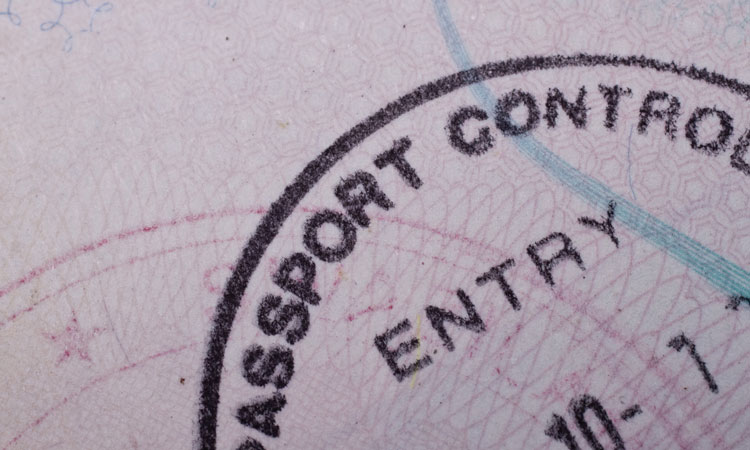Screening for your security
- Like
- Digg
- Del
- Tumblr
- VKontakte
- Buffer
- Love This
- Odnoklassniki
- Meneame
- Blogger
- Amazon
- Yahoo Mail
- Gmail
- AOL
- Newsvine
- HackerNews
- Evernote
- MySpace
- Mail.ru
- Viadeo
- Line
- Comments
- Yummly
- SMS
- Viber
- Telegram
- Subscribe
- Skype
- Facebook Messenger
- Kakao
- LiveJournal
- Yammer
- Edgar
- Fintel
- Mix
- Instapaper
- Copy Link
Posted: 13 October 2014 | Pieter Deelman, Ralph Markert | No comments yet
INTERPOL’s I-Checkit screening solution is an innovative security tool for enhanced global security, says Director of Strategic Planning, Pieter Deelman, and Assistant Director of the International Partnerships and Development Directorate, Ralph Markert


It is well documented that criminals regularly assume different identities to move across borders, carry out illegal activities and escape justice, generating security challenges for governments and private entities both within and between country borders. The UN Security Council Resolution 1617 of 2005 recognised this challenge, and in response urged countries “to ensure that stolen and lost passports or other travel documents are invalidated as soon as possible and share information on those documents with other member states through the INTERPOL Stolen and Lost Travel Document (SLTD) database”. Since its creation in 2002, the SLTD database has grown into a database that now contains more than 40 million records from 167 countries, is searched more than 800 million times annually, and yields roughly 70,000 hits. It has been endorsed by other international organisations like the G8, members of the Asia Pacific Economic Cooperation and the International Civil Aviation Organization (ICAO) as well as by the European Union.
Unfortunately, to date only a handful of countries are using SLTD systematically to screen passengers transiting, departing or landing at their border points. This means that there is still a significant security gap to be filled to secure global human flows. According to the International Air Transport Association (IATA), airline companies are expected to welcome approximately 3.6 billion passengers in 2016, 800 million more than 2011. The increase in travellers will put an even greater burden on countries that do not have the resources to screen every person that enters and exits their territory. Moreover, many border services are becoming increasingly permeable for greater convenience. Currently, only six out of every 10 passports are screened against the database, and by doing nothing, this gap will only increase.
This gap is why INTERPOL created the I-Checkit initiative. I-Checkit enhances the scope of the STLD database by providing a screening solution for targeted private entities in the transportation as well as in the banking, and tourism industries, protecting their business from criminal activity whilst increasing the detection rate of travel documents that have been reported as lost or stolen by INTERPOL member countries worldwide. Wanted criminals need to be stopped before they board a plane, before they enter an airport and ideally before they can order a flight ticket – and this is the point of I-Checkit.
In practice, I-Checkit will facilitate the secure transfer of non-nominal information from the private sector to law enforcement so that it can be screened against the SLTD database via INTERPOL’s secure channels, without any negative impact on police operations. The process of screening would take less than half a second and includes only information on travel document number, type of document and issuing country. Therefore, the security of personal data belonging to clients and passengers is never called into question. Additionally, police data will be protected through the supervision of INTERPOL’s Office of Legal Affairs so that all information shared with private partners via I-Checkit will be subject to INTERPOL’s stringent data protection rules, as well as members countries’ own national law enforcement processes. Consequently, the private sector will not have direct access to the SLTD database.
How does it work in the testing phase with airlines?
The I-Checkit Task Force within INTERPOL is currently running and setting up different tests with the airline industry to analyse how it could be extended in the best way towards all private sector partners. In the case of a hit, in the current testing phase, INTERPOL General Secretariat, the INTERPOL National Central Bureau (NCB) of the country where the airline is registered and the NCB of the country that owns the data will receive immediate notification of alert so that local law enforcement authorities can evaluate and investigate alerts in accordance with their legal norms and procedures.
The testing phase is generating significant results. In fact, since the launch of the I-Checkit test with leading low cost airline, AirAsia, on the 19 June 2014, more than one million travel documents of AirAsia’s passengers have been screened against the SLTD database with promising outcomes that demonstrate the need to detect identity fraud and combat transnational organised crime. To compare incoming data from the private sector against the SLTD database only document number, the type of document, and the country code are shared. No additional information like name of passengers, flight route or any personal information is requested. The benefits so far have been clear.
For law enforcement, the I-Checkit service brings the following benefits:
- Informs law enforcement and other stakeholders in real-time when a suspect individual or a person is using a fraudulent travel document or travel documents
- Detects known criminals, wanted persons or individuals attempting to carry out transactions using fake identity documents
- Prevents the unlawful activities of criminals that exploit gaps in not only airline security, but that of banks and tourism to carry out their crimes
- Provides a high-impact investigative tool that can monitor and disrupt criminal networks and their funding on a global scale
- Improves collaboration and information-exchange between the law enforcement community and the private sector
- Investigation of hits acts as a filter through which to update and improve the quality of the data held within STLD database
- Builds partnerships with the private sector in areas of shared responsibility
- Reduces the success and incentive of criminal activity on a global scale by establishing a diverse network of private sector partners.
For the private industry, the I-Checkit service brings the following benefits:
- Enhances identity protection measures to minimise criminal activity and attacks, increasing customer and employee safety
- Fosters enhanced brand trust and loyalty
- Demonstrates compliance with international security norms linked to specific industries
- Simple and cost-effective step for private entities to improve customer due diligence, such as ‘Know Your Customer’ procedures
- Improve collaborations with INTERPOL and other members of the law enforcement community
- Reduce administrative work and financial costs by already stopping for example illegal migrants using stolen or lost travel documents to cross borders by using an airline company.
The I-Checkit screening solution is a new innovative INTERPOL tool which, for the first time in history, brings together the public and private sector in this area on a global level. The results from the test phase will be presented at the INTERPOL General Assembly in Monaco in November 2014 with the goal of all 190 of our member countries adopting a resolution to initiate the piloting phase. For this, we hope to see several airlines joining us as partners, among other private sector entities, in order to achieve our collective vision of a safer world.
Biographies




Issue
Related topics
Passenger experience and seamless travel, Regulation and Legislation, Safety


















